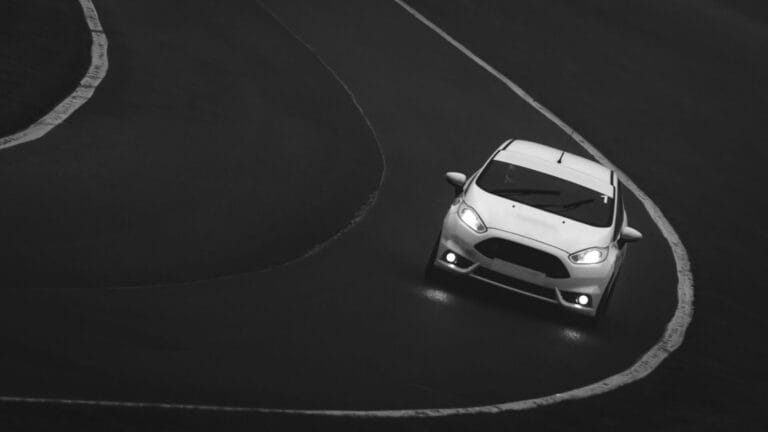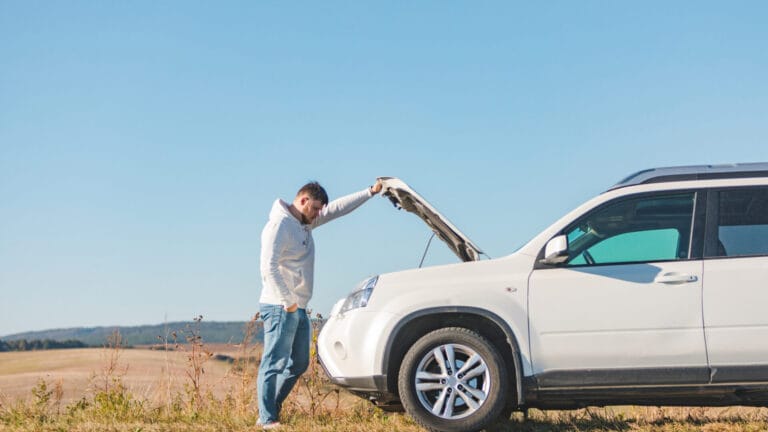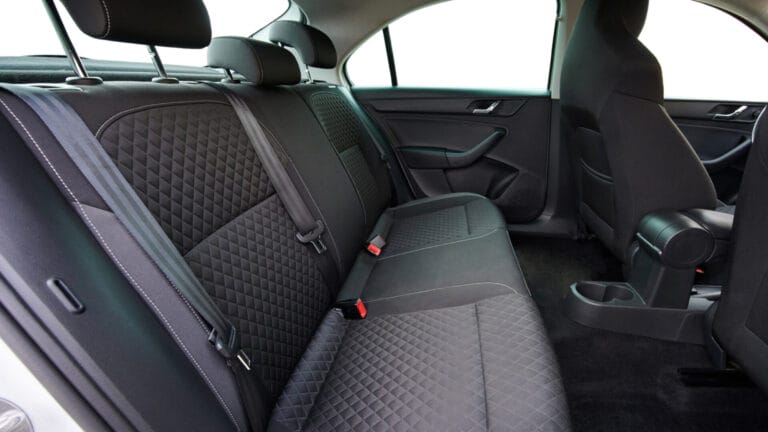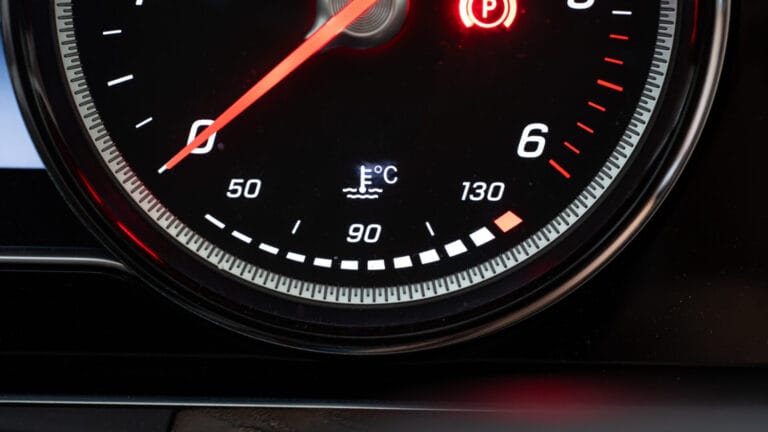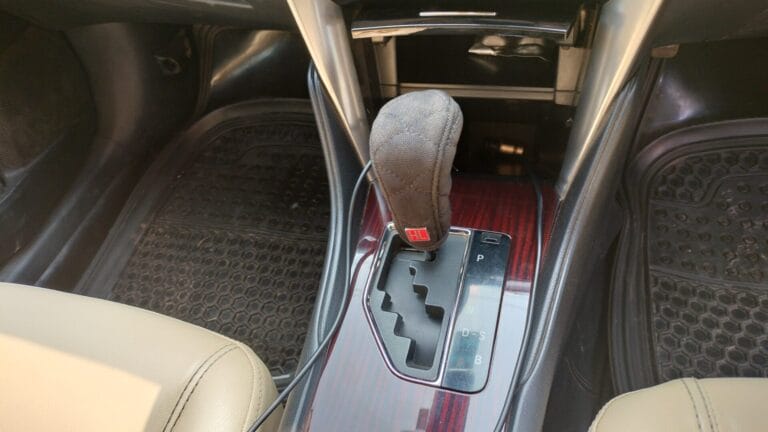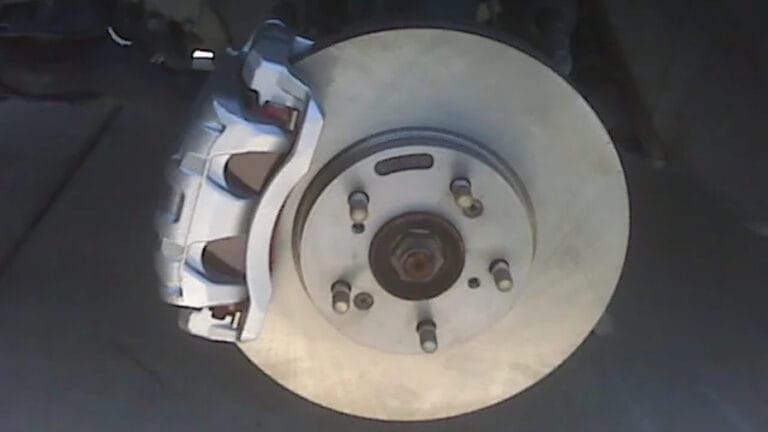The Mystery of Clunking Noise When Accelerating from Stop
Have you ever heard that not-so-musical clunking noise when accelerating from stop?
It’s not only annoying but also a cause of concern. Your car is trying to tell you a little secret, and today, we’re here to decode it. From loose parts to worn-out components, many more are there that may cause this clunking noise. In this guide, we will learn about the possible reasons behind the clunky sound, why it occurs during acceleration, solutions to fix it, and so on.
Don’t take any chances with your safety and your car’s health – let’s demystify the clunk and get your car singing a smoother tune!
Understanding the Clunking Noise When Accelerating from Stop
What is the Clunking Noise?
Clunking noise itself can vary in tone and intensity, but it is often characterized by a deep, dull, and heavy sound. Imagine dropping a heavy weight on a solid surface; the resulting thud is somewhat analogous to a clunk.
When It Occurs
A clunking noise in a vehicle occurs when two mechanical components collide. When you press the gas pedal from a standstill or at low speeds, during gear shifts or speed changes, or accelerating from a stop, you can hear a clunking noise.
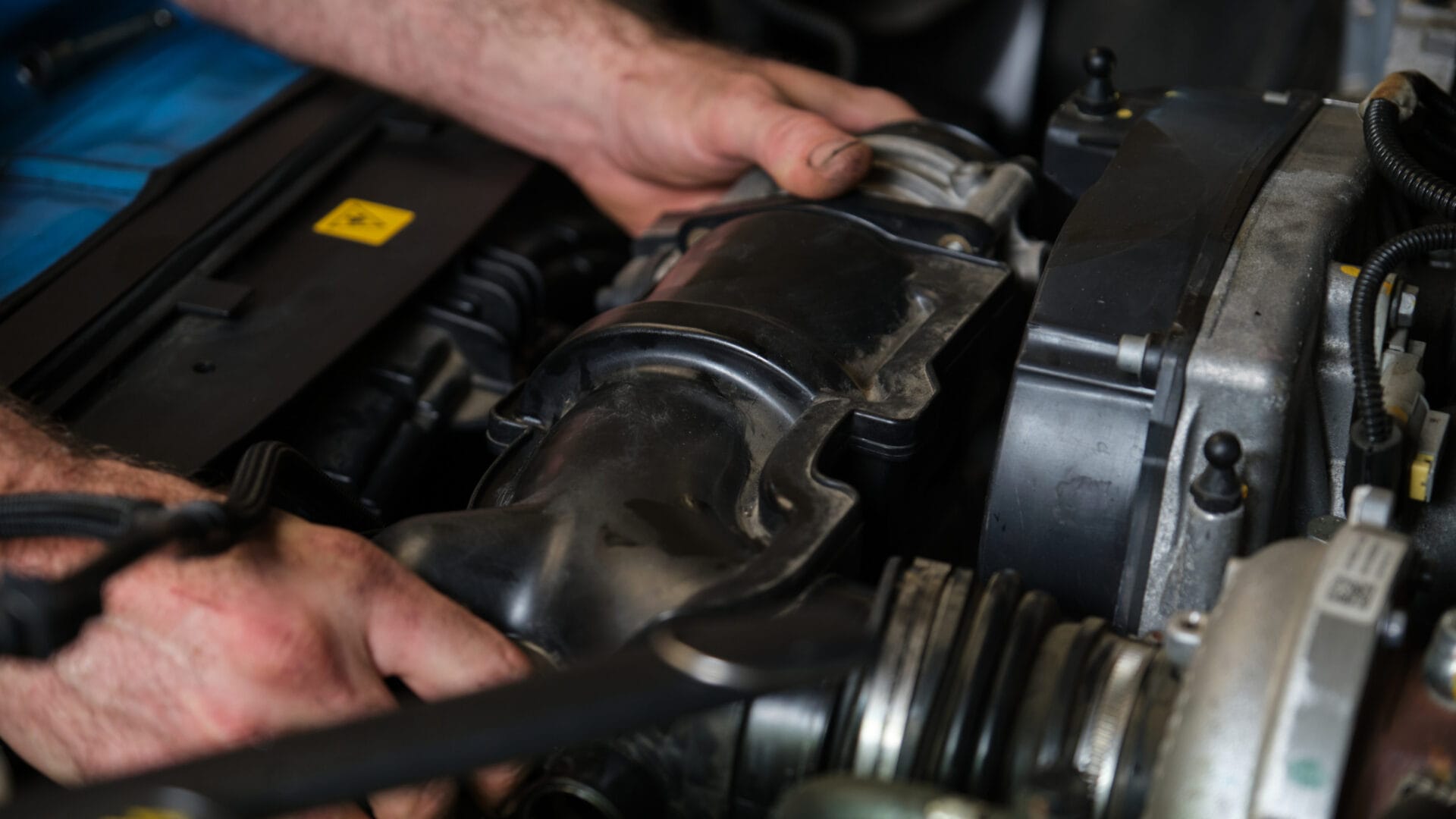
What Causes Clunking Noise When Accelerating From Stop
In the world of cars, every component plays a role in the symphony of motion. When one instrument is out of tune, you get a clunking noise instead of a smooth melody.
Let’s discuss those components and how they cause clunking noises when accelerating.
Transmission System
- CV Joints:
The CV joint, or constant velocity joint, is responsible for transferring power from the transmission to the wheels while allowing for flexibility and movement. When they wear down or become damaged, there is excessive play in the joint, or the grease inside can dry up and cause clunking noises. And especially when accelerating from stop because that’s when the most stress is placed on the joint.
Quick Fix
Replace the CV joint.
- Loose Drive Belt:
The drive belt is responsible for transferring power from the engine to various components, such as the alternator, water pump, and power steering pump. When the drive belt becomes loose, it may slip or make contact with other parts of the engine, resulting in a clunking noise. This can happen when you accelerate from a stop because there is an increase in tension on the drive belt as more power is needed.
Quick Fix
Simply tight or replace the drive belt and get rid of this annoying clunking noise.
- U Joint Issues:
The U joint, short for universal joint, allows power transfer between two shafts at different angles. When these joints become worn or damaged, they develop excessive play or looseness in the drivetrain, resulting in a clunking noise when torque is applied.
Quick Fix
Typically, lubricating the U joints should solve the problem, but if not, consult a professional and replace it.
- Motor Mount Issues:
Motor mount or engine mount is responsible for holding the engine in place and absorbing its vibrations. When they become worn or damaged, they can no longer provide the necessary support, leading to excessive engine movement. This movement can put a strain on various components as the engine shifts abruptly and comes into contact with each other, resulting clunk noise.
Quick Fix
A motor mount is an important part of a car, so it’s best to consult a professional before taking any action.
Wheels &Tires
- Loose Lug Nuts or Wheel Bolts
A wheel bolt or lug nut is threaded onto the wheel hub to keep your wheels aligned and balanced to ensure a safe and smooth ride.
When your lug nuts or wheel bolts are loose, it means that the wheels aren’t securely attached to the vehicle. As you start to accelerate, the force generated can cause the wheels to move and shift around, leading to wheel instability. This movement can result in a clunk sound as the loose bolt hits against other components of the vehicle, like the brake calipers or suspension parts.
Quick Fix
Grab a torque wrench and tighten those lug nuts or wheel bolts to the manufacturer’s recommended specifications.
- Wheel Bearing Issues
The wheel bearings are what allow your wheels to spin smoothly on the axle. When you accelerate from a stop, the weight of the vehicle shifts forward onto the front wheels. If one or both of the front wheel bearings are worn or damaged, this shift in weight can cause them to move around. This creates friction and play between the wheel and the axle and makes that clunking sound you’re hearing.
Quick Fix
Replace the damaged wheel bearing; it’s an easy DIY process.
- Tire Issues
If your tires are out of balance or have uneven tread wear, it can cause vibrations and noises when you hit the gas pedal. Or, if you’ve recently had your tires rotated or replaced, it’s possible that they weren’t properly tightened or aligned, which can also lead to clunking noises.
Quick Fix
Inspect the tires by a professional and get the tires balanced or aligned, whatever it demands.
Exhaust System:
- Exhaust Mounts and Hangers:
Exhaust mounts and hangers keep the exhaust system securely in place. Over time, these components can wear out or become loose, causing the exhaust system to move around more than it should. When you hit the gas pedal and accelerate, the movement of the engine can cause the exhaust system to shift or bounce, leading to that clunking noise.
Quick Fix
Tighten or replace the exhaust mount and hangers as needed.
- Exhaust Heat Shield:
An exhaust heat shield is designed to protect nearby components from the intense heat generated by the exhaust system. Over time, the heat shield itself can become loose, corroded, or worn due to overheating. In that case, it rattles against the exhaust system and creates that annoying clunking noise, especially when you hit the gas for more pressure on the exhaust system.
Quick Fix
Resecure or replace the exhaust heatshield depending on the damage.
- Loose or Damaged Muffler:
The muffler is designed to reduce noise and direct exhaust gases away from the engine. When you hit the gas pedal and accelerate from a stop, the increased exhaust flow and pressure cause all that extra vibration and movement. It causes the muffler to bump against other parts of your car’s undercarriage. That’s when the muffler vibrates even more and makes that clunking noise.
Quick Fix
Get the muffler checked out by a mechanic as soon as possible and repair or replace it if necessary.
- Exhaust Pipe Issues:
When you hit the gas pedal and start to accelerate, the engine produces power and pushes out exhaust gases. These gases travel through the exhaust system, which includes the exhaust pipe. Now, if there’s any issue with the exhaust pipe, like damage or misalignment in the exhaust pipes, they hit other components, leading to clunking noises.
Quick Fix:
Get your exhaust pipe checked by a professional mechanic who can identify and fix any issues.
- Catalytic Converter Problems:
A catalytic converter is responsible for reducing harmful emissions from your vehicle’s exhaust system. Over time, it can become clogged or damaged, causing a restriction in the flow of exhaust gases. When you accelerate from a complete stop, the sudden increase in engine power can put extra pressure on the already struggling catalytic converter, leading to that clunking sound.
Quick Fix;
A malfunctioning catalytic converter can negatively impact your vehicle’s performance and fuel efficiency. So, have your car checked out by a professional mechanic who can properly diagnose and repair your catalytic converter.
Braking System
- Brake Caliper
Brake caliper is responsible for applying pressure to the brake pad and slowing down your vehicle. When your car is at a standstill, and you step on the gas pedal, the sudden force applied to the wheels can cause the brake calipers to shift or move slightly. This movement can result in a clunking noise as the calipers make contact with other components, like the brake pads or rotors. Additionally, if you have worn or damaged caliper or loosened bolts that shift the caliper, that can also make clunking sounds.
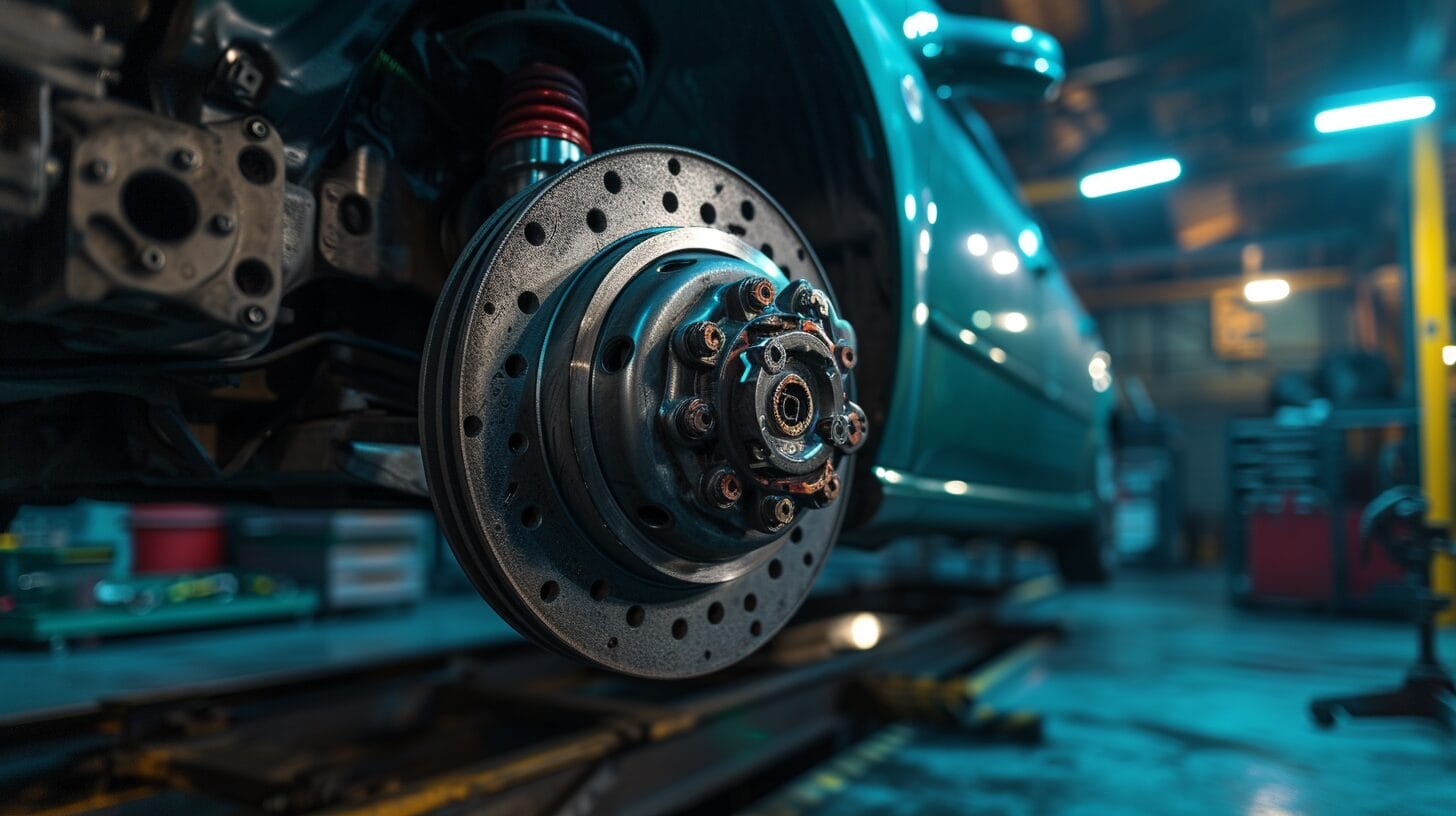
Quick Fix
Tighten the bolts if they’re loose, or replace the caliper if it’s damaged.
- Brake Pads and Hardware:
When you hit the brakes, the brake pad and hardware come into play to help slow down your wheels. Over time, brake pads become old or worn down, lose their grip on the rotor, and start to rattle around in their housing. Just when you hit the gas, the momentum of the car causes brake pads to shift and create that clunk sound. Additionally, if the hardware (which holds the brake pads in place), caliper bolts, or backing plates are damaged or loosened, it can also contribute to the noise.
Quick Fix:
Replace the brake pads and, if needed, the hardware too.
- Brake Rotors
When you hit the brake pedal, the brake pads exert pressure on the rotors to slow down your vehicle. Over time, the constant friction between the pads and rotors can cause some wear and tear. This wear can lead to uneven surfaces on the rotors, creating a slight wobble as they spin. When you release the brakes and accelerate, this wobbling can cause the brake pads to move slightly back and forth, resulting in that pesky clunking noise.
Quick Fix
Resurfaced or replaced the brake rotor.
Drivetrain
The drive shaft is responsible for transferring power from the transmission to the wheels, and if there’s any problem with it, it can lead to some pretty annoying noises.
- Transmission Mount:
The tranny mount is designed to secure the transmission in place, and if they are compromised, movement can occur. This movement may allow the transmission to shift during acceleration, leading to clunking sounds.
- Axle Issues:
Worn or damaged axles, particularly the half shafts in front-wheel-drive vehicles, can cause clunking noises during acceleration. Axle problems may result in uneven power distribution and noise during acceleration.
Suspension and Steering
- Shocks or Struts Absorber
Shocks and struts absorb the bumps and vibrations of the road. When you accelerate from a dead stop, the force of the engine sends a jolt through the suspension system. If they’re worn or damaged, suspension components may not be able to handle this added stress, resulting in that unmistakable clunk sound.
Quick Fix
Get those shocks or struts checked and replaced.
- Ball Joints
Ball joints connect the control arm to the steering knuckle. Over time, these ball joints can wear out due to normal wear and tear or lack of lubrication. When this happens, they can cause excessive play in the suspension, and this sudden change in momentum puts more strain on the already weakened ball joints, resulting in that annoying clunking noise.
Quick Fix
There is no choice but to replace the damaged ball joints.
- Control Arm Bushings
Control arm bushing connects your lower control arm to the vehicle chassis and absorbs shocks and vibrations while also ensuring smooth suspension movement. Over time, they can get damaged due to constant use and exposure to the elements, losing their cushioning and stabilizing ability. As a result, when you accelerate from a stop or hit bumps in the road, they can’t control the arm, and you hear a clunking noise.
Quick Fix
Replace the damaged control arm bushings.
- Steering Rack Mounts
The steering rack mounts hold the steering rack in place and absorb any vibrations or shocks that occur during hard acceleration. Over time, these mounts can wear out or become loose. When you accelerate from a stop, the engine produces a torque that gets transmitted through various components of your car, including the steering system. Worn or loose steering rack mounts can not handle this torque effectively, resulting in that clunking sound.
Quick Fix
Tighten if the steering rack is loose. But if damaged or worn out, replacement is the only option.
How Does a Properly Functioning Car Sound Like?
A well-functioning car should provide a smooth driving experience from start to finish. As you accelerate, the car should respond seamlessly, without any sudden jerks or hesitations. Engine mounts, which reduce vibrations and engine noise, play a vital role in maintaining a quiet ride. When it comes to the drivetrain, a properly working car operates quietly—no clunking or grinding sounds should be present during acceleration or deceleration.
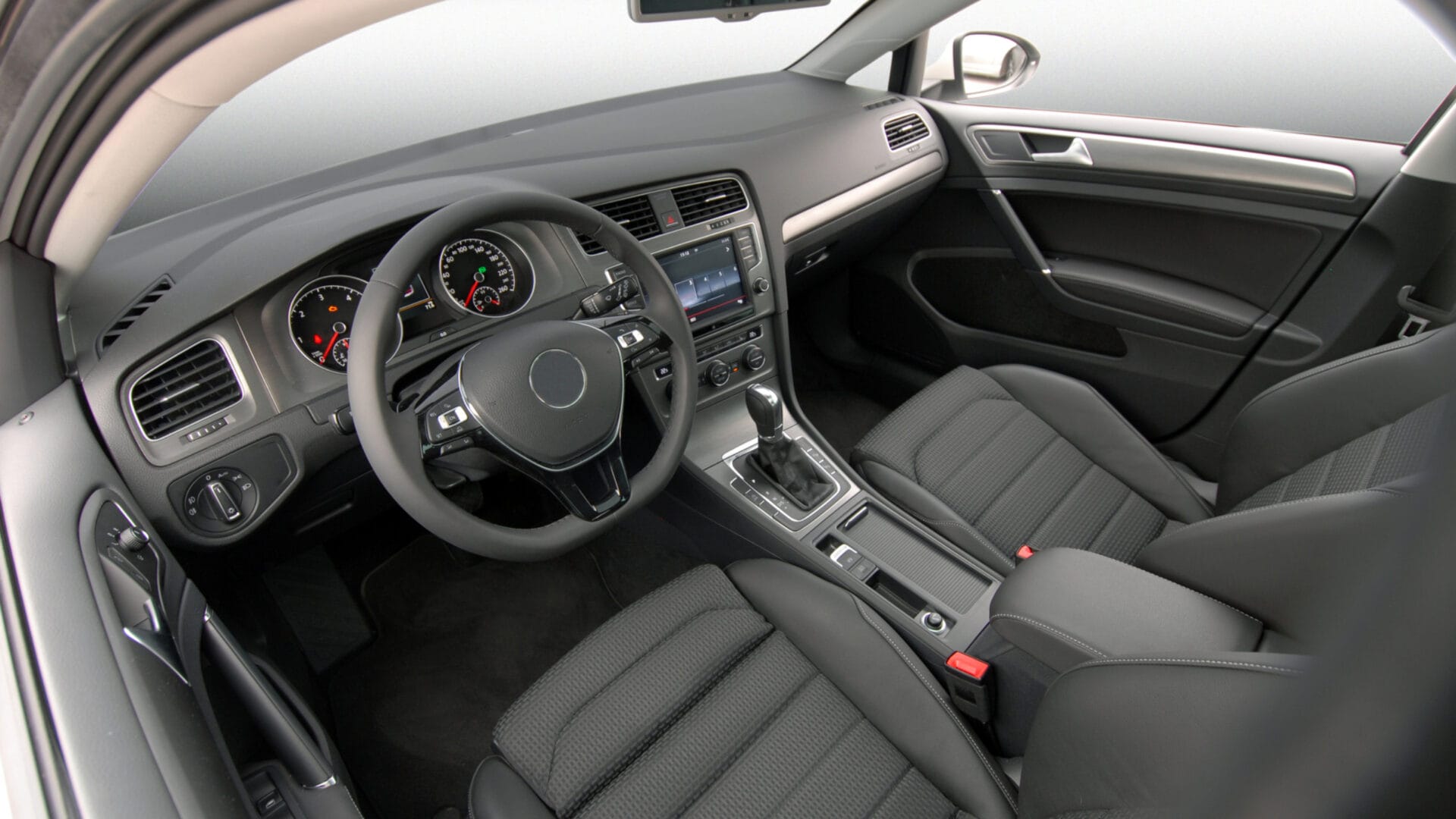
The suspension system is responsible for a comfortable ride. If it’s in good condition, you won’t experience excessive rattling or clunking, even when going over bumps. Throttle response should be smooth, ensuring a predictable and comfortable driving experience. Turning the steering wheel should be met with a gentle whirr from the power steering system, and there should be no loud clunks or groans.
A well-maintained braking system operates quietly and effectively, providing both safety and comfort.
Is It Safe To Drive With The Clunking Noise?
Driving with clunking noises is not recommended. Continuing to drive can lead to further damage and safety risks.
Clunking noise when accelerating from stops means something is wrong with important parts like the drivetrain, suspension, exhaust system, braking system, transmission system, wheels and tires, etc.
The problems causing the clunking might lead to your car breaking down or being hard to control. So, ignoring this problem can make your car less safe to drive, increasing the chance of accidents. Additionally, not fixing the issues promptly can be more expensive to fix, reducing the car’s resale value and even leaving you stranded on the road.
Preventive Measures for the Clunking Noise
To prevent clunking noises in your car and keep it in top condition, regular maintenance is key. Following the manufacturer’s maintenance schedule is important.
- Schedule routine check-ups with a mechanic to catch and fix issues early to maintain car performance.
- Pay attention to unusual sounds and get them checked promptly.
- Keep an eye on your tires, making sure they’re properly inflated and balanced.
- Change oil and filters at recommended miles, and always use high-quality fuel and engine oils.
- Regularly clean and lubricate the required components to prevent corrosion.
- Be cautious when driving over bumps and potholes, as they can contribute to wear and tear on your car’s components.
By paying attention to these aspects, you ensure that your vehicle not only runs smoothly but also offers a reliable and enjoyable driving experience.
Frequently Asked Question
Can A Bad CV Axle Cause Clunking?
Yes, a bad CV axle can cause clunking sounds. When a CV (constant velocity) axle is damaged or worn, it may produce clunking noises, especially during turns or when accelerating and decelerating. Yes, a bad CV axle can indeed cause clunking noises in your vehicle. The CV axle, also known as the constant velocity axle, delivers power from the engine to the wheels. If it’s worn or damaged, there will be excessive play or movement in the CV joint when acceleration, especially during turns, causes a clunk noise.
What Is The Clunking Sound In The Gearbox?
The clunking sound in the gearbox is often a sign of a mechanical issue, such as worn-out gears, loose or damaged components, or insufficient lubrication
What Is The Signs Of A Bad CV Axle?
The common signs of a bad CV axle are clicking or popping sounds when making turns. This can be caused by worn-out joints in the axle, which can result in a loss of power transfer to the wheels. Another sign is vibration or shaking while driving, especially at higher speeds. This can indicate that the CV axle is damaged or worn and needs to be replaced. Additionally, if you notice grease on the inner edges of your tires or on the underside of your vehicle, it could be a sign of a leaking CV boot, which should be repaired as soon as possible to prevent further damage.
Is It OK To Drive With Rattling Noise?
No, it is not OK to drive with a rattling noise. Because it’s not only a sound but a sign of a serious mechanical issue that could potentially lead to further damage. Driving with a rattling noise could put you at risk of a breakdown or even compromise your safety on the road.
Can Low Oil Cause Rattling?
Low oil levels can indeed cause rattling in a vehicle’s engine. When there is not enough oil to properly lubricate the moving parts of the engine, they can start to rub against each other and create a rattling sound. This is especially true during startup or when the engine is under heavy load.

